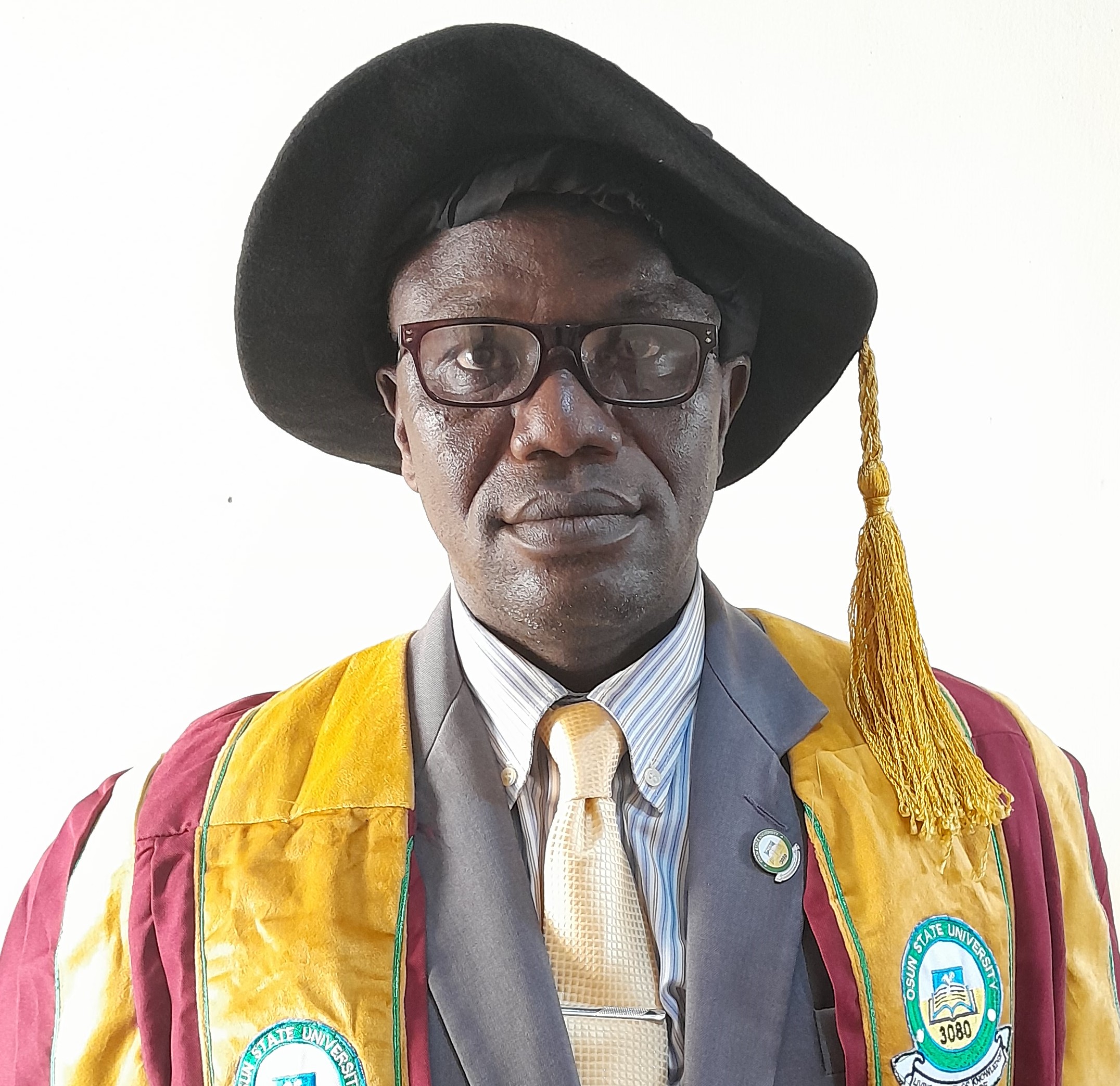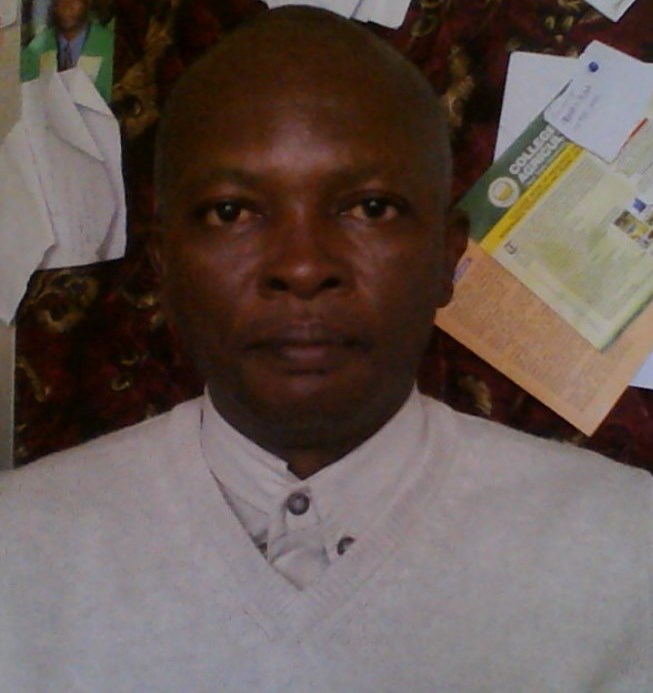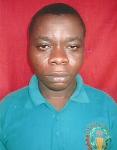Welcome Address/Introduction of HoD of the Department
Coordinator
The essence of running the undergraduate (B. Fisheries and Aquaculture) and post graduate (PGD, MFA, M.Sc., and Ph.D.) programmes in fisheries and aquaculture is to develop graduates with all round knowledge in theory and practice in the arts and science of ordering and managing aquatic resources for sustainable productivity and uses based on the detailed understanding and analysis of global and societal needs, goals and objectives. These are within the socio-economic and physical environmental frameworks. These graduates will be exposed to the rudiments of Fisheries and Aquatic Resources management to meet our societal changing needs.
The Bachelor of Fisheries and Aquaculture Programme is conceived to produce graduates to serve as middle level officers. The programme is developed to encourage intellectual growth with relevant practical and professional competence required for scientific resolution of social, economics, biological and environmental issues relating to aquatic and associated resources in this contemporary time with the aim of ensuring optimum sustainability management and productivity of the resources
Location of the Department
The Department is one of the departments in the Faculty of Renewable Natural Resources Management, in the College of Agriculture which is located in Ejigbo town of Osun State. Ejigbo, is situated along the border between Oyo and Osun States. The Department is in the Faculty of Renewable Natural Resources Management building.
Brief History of the Department
The Department of Fisheries and Aquatic Resources Management started as a unit that offer degree in Fisheries and Aquaculture as a programme in the Department of Animal Science and Fisheries at inception. In 2011, the Department of Fisheries and Wildlife management was created to offer two programmes respectively viz: Fisheries and Aquaculture and Wildlife Management programmes. In 2019, the Faculty of Renewable Natural Resources Management was created with three Departments under it and the Department of Fisheries and Aquatic Resources Management was one of them.
The first set of students were admitted on the 8th October, 2007 and graduated with Bachelor of Fisheries and Aquaculture on 27th June, 2012. The Department has since, been producing highly qualified graduates who are employed in different relevant works of life, while some are on further studies. The Department offers programme leading to the award of Bachelor’s degree in Fisheries and Aquaculture, as well as post graduate programmes (M.Sc. and Ph.D.) in the different areas of specialisation of Fisheries and Aquaculture. The Department has so far graduated two (2) different sets of M.Sc. Fisheries and Aquatic Resource Management students, while the Ph.D. candidates are still running their programme.
The Department has been a leading element in advancing frontiers in research and knowledge within Nigeria. For the past few years, the members of the academic staff in the Department have won several grants from reputable organizations which include the institutional based research (IBR), Tet-Fund and National Research Fund (NRF) grants.
The Department has cordial relationship with Fisheries Society of Nigeria (FISON), Association of Nigerian Scientists (ANIFS), World Aquaculture Society (WAS), West African Region of World Aquaculture Society African Chapter, Association of Organic Agriculture Practitioners of
Nigeria (NOAN), and National Knowledge Centre for Organic Agriculture in Africa (KCOA).
The Department is endowed with sophisticated equipment in fish processing, fish breeding, nutrition and production, water quality monitoring test kits, earthen ponds, concrete tanks and other fish holding receptacles’ design, construction and management, fish hatchery design and construction, production of insects such as maggots, grasshoppers, black soldier fly larvae etc. to feed fish, aquaria design and production, ornamental fish culture and production, integrated fish production.
The students registered in the Department offer same courses at the 100 level as their counterparts in basic sciences, at 200 level they offer same courses with related Departments within the College, while in 300 level, they concentrate on courses relevant to Fisheries and Aquatic Resources management. At 400 level, students take in situ practical year courses under the Student Work Experience Programmes during the Harmattan Semester after which they proceed on a six-month Student Industrial Work Experience Scheme (SIWES) ex situ in relevant agencies and establishment during the Rain Semester as part of their graduation requirement.
The Department operates academic curricular that are tailored along the stipulations contained in the National Universities Commission (NUC) Benchmark for Minimum Academic Standards. The academic programmes in fisheries and aquatic resources management, are being run to produce graduates to serve as middle (graduates) and upper (postgraduates) level officers. The programme is developed to encourage intellectual growth with relevant practical and professional competence required for scientific resolution of social, economics, biological and environmental issues relating to aquatic and associated resources in this contemporary time with the aim of ensuring optimum sustainability management and productivity of the resources.
The Department therefore aims at:
- Producing skilled middle and upper level officers who could engage in fisheries and aquaculture activities, provide the needed manpower and create employment opportunities.
- Provides opportunities for the interested candidates to develop effective skill and career to encourage better contributions and advance cutting edge of knowledge in aquaculture and fisheries management.
- Enable the upcoming generations of renewable natural resources scientists to acquire training in critical and objective analysis of issues with balanced judgments which will give them a good standing in research, culture and the management of fisheries, aquatic and associated resources
Mission of the Department
Our mission is to create a unique academic centre of excellence providing high quality teaching and learning experiences in Fisheries and Aquatic Resources Management that will engender the production of entrepreneurial graduates in this discipline, capable of impacting positively on their environment while being globally competitive. The programmes aim at development of creative, innovative and self-reliant human resources in form of graduates with entrepreneurial culture, good communication skills, computer literacy and problem-solving abilities who will transform the society for the better.
Vision of the Department
To be an exemplary Department of excellence in providing high quality teaching, learning and research experience in the areas of Fisheries and Aquatic Resources Management that will lead to the production of scholars, researchers and professionals in academics, capable of having impact on their environment while being globally competitive.
Academic Programme
- Fisheries and Aquaculture
- M.Sc. Fisheries and Aquatic Resources Management Options in: Fisheries Management Aquaculture
- Ph.D. Fisheries and Aquatic Resources Management Options in: Fisheries Management Aquaculture
Physical Development
The Directorate of works and physical development continues to supervise the on-going physical development projects which include approach road construction, health centre, classroom complex, ICT centre, library building, laboratories complex, sports arena and facilities and farm structures. A feed mill factory, standard fisheries and aquaculture complex.
There are three functional laboratories in the College that serve the academic programmes of the Department. The laboratories are well equipped to cope with the teaching of students and for the use by the academic staff for research purposes. Well-equipped class rooms and lecture rooms are also available for the smooth running of academic programmes in the department, faculty and the college as a whole.
The desire to create a model department of fisheries and aquatic resources management in the college of agriculture is the driving tempo for the physical development in the department, faculty and the college.
Research Activities
Basic and applied research in fisheries management, aquaculture, fish processing, water quality, etc. are being embarked by the members of academic staff in the department. Areas of research coverage include: fish nutrition, fish ecology, toxicology and water pollution, fish preservation and value addition, aquaria design and construction, ornamental fish production, ornamental fish feed production, mono and poly culture fish production, food and feeding habits of different freshwater fish species, acute toxicity of extracts from some of the fish feed plant ingredients or other chemical materials which are always being used for agricultural production. The members of staff in the department are in collaboration with various departments from different Universities in Nigeria and outside Nigeria.
The TetFund-NRF research grant won by a team in the department is titled “Nutrition and health implications of processed insects as protein supplements in the diets of Clarias gariepinus and Heterobranchus bidorsalis.” This study considers the use of different processed insects as replacement of fish meal in the diets of the named fish species. The study aims at investigating the possibility of replacing fish meal with black soldier fly larvae (BSFL) or grasshopper, and examine the growth effect and the health implication of these processed insects on the fish species being fed with them. The potential tendencies of these processed insects as cheaper animal protein sources over the expensive fishmeal would also be investigated. However, this study is still ongoing.
Journals:
- Nigeria Journals of Fisheries
- Field guide to Nigeria freshwater fishes
- Journal of agriculture, forestry and fisheries
- Journal of aquatic sciences
- Journal of forestry, environment and sustainable development
- Fish and human health
- Fisheries and fish toxicology
- Fish production and management manual
- Freshwater Aquaculture
- Deep water fisheries of the North Atlantic Oceanic slope
- Proceedings of the 30th FISON conference Delta 2015
- Sustainable integrated pond based aquaculture with rice and poultry production: economic, social and environment assessment
- Integrated fish farming: fish, rice and pig
- African Journal of fisheries
- Journal of Association of Nigerian Fisheries Scientist
- Journal of the Faculty of Renewable Natural Resources, University of Ibadan, Nigeria.
- Online Journals
Grants and Awards:
TETF/ES/DR/&D-CE-/NRF 2020/SETI/20/VOL.1 (Ipinmoroti et al.). Funded by Tertiary Education Trust Fund National Research Fund (TETFund-NRF).
Community Empowerment Service Project:
The department engages in sensitizing the fish farmers on the better way to produce their fish, produce their fish feed and value addition to their produced fish in order to make better profit. The alternative and cheaper fish feed ingredients to use in fish production. The Fisheries Society of Nigeria (FISON), Osun State Chapter was established by the department of Fisheries and Aquatic Resources Management such that the results of the research studies carried out by various researchers in this profession could be introduced and discussed with the practicing fish farmers. This has been encouraging the fish farmers. The meeting holds at the main campus of the Osun State University, Osogbo, Osun State. Through the interaction with organic societies (NOAN & KCOA) in Nigeria and abroad, the department has also been able to sensitize fish farmers on the way to produce and sell organically produced fish as a means of improving their income or profit.
 Dr. Olaide Kamila AKINTUNDE
Dr. Olaide Kamila AKINTUNDE
Ag. HOD
Introduction:
The Department of Agricultural Economics and Agribusiness over the years has played pivotal role in producing the knowledge base that has sustained the link between agriculture and other sectors of the economy at the national and global levels. Therefore, programmes in Agricultural Economics and Agribusiness Management have shown the capability to produce high level manpower that can engage in teaching and research, capable of providing solutions to the very complex problems arising from the linkages of agriculture with other sector of the economy. The Department offers courses in Agricultural Economics and Agribusiness Management that prepare the students for all levels that study in Agricultural economics and Agribusiness Management or to pursue a career as an agricultural economist in the public or private sector. The products of this famous department without doubt have been competing with their counterparts across the globe either as they progress in their academic career, multinational as well as working in public or private sector.
Location:
The Department is located in the ancient town of Ejigbo in the College of Agriculture. Ejigbo is one of the oldest local governments in the old Oyo state before the creation of Osun State. It shares boundaries with Oyo state, and Local government areas like:Iwo, Ola Oluwa, Egbedore and Ede North. The vegetation of Ejigbo is tropical Savannah and major crops are Cashew, Cocoa, maize, cassava, and oil palm.
Brief History:
The department of Agricultural Economics and Agribusiness Management came into existence following the bifurcating of the Department of Agricultural Economics and Extension during the 2021/2022 academic session. The first set of students were 27 in number. The department has continued to witness unprecedented growth and development in all areas.
Vision of the Programme:
The vision of the department is to be one of the outstanding departments of excellence providing high quality teaching and learning experiences in the business of farming and research in agriculture. This, we hope, will produce globally competitive graduates capable of standing out on their own as shining examples anywhere they find themselves. One of the most important ingredients we inculcate in our students is entrepreneurial spirit of excellence in agricultural economics and agribusiness management.
Mission statement:
The mission of the department is to establish a department that is technologically and professionally sound as a model centre of excellence committed to the pursuit of academic innovative and skill-based training in Agricultural Economics and Agribusiness Management. This will set the pace and tradition of excellence in teaching, high innovative technology, research and community service.
Academic programmes:
The Department offers courses leading to the award of:
- Bachelor of Agriculture (B. Agric) degree in Agricultural Economics and Agribusiness Management
- MSc. Agricultural Economics (Environmental and Resource Economics, Agricultural Marketing and International Commodity Trade, Agricultural Development and Policy))
- Ph.D. Agricultural Economics
Physical Developments:
Physical Development projects in the department include: Head of department office, Agric, Economics Data Laboratory, classrooms complex, laboratories complex, and farm structures. Training and visit to major markets. Others include: Conducive and Serene, Environment for learning, Comfortable Classrooms, Modern E. Technology Library, and Computer room for research.
Research activities:
Sustainable Goats and Sheep Production to Enhance Food and Economic Security of Rural Households in Osun State, Nigeria. Tetfund Institution Based Research (2023)
Grants and Awards:
Sustainable Goats and Sheep Production to Enhance Food and Economic Security of Rural Households in Osun State, Nigeria. Tetfund Institution Based Research (2023). Grant Number: UNIOSUN/TETfund/17/10
Community Empowerments Service Projects:
The department collaborates with the department of Agricultural Extension and Rural Development in the establishment of Outreach centres and also plays major role in development of major markets within and outside Ejigbo.
Welcome Address/Introduction:
Coordinator
Email:
The Department of Animal Science formally known as the Department of Animal Science and Fisheries came to being alongside with other Departments during the establishment of the College of Agriculture in the year 2007. This Department opened its door to commence academic activities as well as admit its first set of undergraduate students in 2007/2008 academic session on Wednesday 8th October 2008, and graduated them in 2011/2012 academic session on 27th June, 2012.The department of Animal Science since its inception has continued to offer courses without any disruption of academic session.
Livestock production is ever dynamic due to dynamism in the human population and demand pattern for livestock and its product. These shifts bring about changes in production systems. In the last decades, new technologies, innovation, emphasis and challenges to livestock production have emerged. Of necessity, new ways have to be found to make room for the adoption of these new technologies, embrace the new emphases and have to proffer solution to the new challenges. Pursuant to these therefore, and in line with the vision and mission of this University, the Department of Animal Science propose a research agenda to be put forward for consideration as part of the Postgraduate programmes of the University.
Location:
Department of Animal Science is among the seven departments floated by the College of Agriculture in the Faculty of Agricultural Production and Management, which is located in Ejigbo. The town is located along the border between Oyo and Osun State. The faculty is currently having four (4) Departments with students admitted into their programmes.
Academic Programmes:
The following are the department’s programmes at undergraduate:
B. Agric. (Animal Science) and postgraduate: PGD. M.Sc. Ph.D. Animal Science
Vision of the Department:
Our vision is to graduate excellent students that can contribute to the development of livestock industry, ensure the sustenance of livestock product and by-product for human and provision of affordable animal protein.
Mission of the Department:
Our mission is to be an exemplary department of excellent providing high quality teaching, learning and research experience, this will lead the production of employable graduate, entrepreneurs, scholars, researchers and professionals in the field of livestock production and managements, and animal health management that will be capable of having impact on their environment while being globally competitive.
Research Activities:
The Department research activist is centred on basic and applied research in general Animal science, Animal Nutrition, Animal Physiology, Animal Breeding and Genetics, Nutritional Biochemistry, Livestock Production and Management, Animal Health Management and so on
Research facilities being developed include:
- Teaching and research farm – 2000 broiler capacity pen, herds of cattle, 3000 layers capacity pen, breeding and production pen for sheep and goat, pig and rabbit
- Teaching and research laboratory
Grants and Awards:
- Grant Number: UNIOSUN/TETFund/17/12 on “Establishment of open nucleaus breeding colony for rabbit (Oryctolagus cunniculus) small holder production system in Osun State” by Osunkeye, O. J., Ajayi, B. A., Fakolade, P. O. and Alao, O. T.
- Grant Number UNISOUN/TETFund/14/005 on “Performance, carcass characteristic and economics of production of broilers fed cowpea testa-based diet” by Fakolade, P. O., Olorede, B. E., Alabi, B. A., Osunkeye, O. J., and Akinduro, V. O.
Welcome Address/Introduction:
Ag. HOD
Email:
The Department of Agronomy conducts basic, applied and adaptive research on the management of tropical soils, technology of seed production, and all aspects of horticulture. The department is aimed at training high level manpower for the Universities and Research Institutes, and provides human development capabilities for the general Nigerian economy.
Location:
The Department of Agronomy is one of the departments under College of Agriculture in Ejigbo. The town is located along the border between Oyo and Osun State. The Department of Agronomy has teaching and non-teaching scientists who are versatile to produce high level of agricultural graduate with broad based advanced-knowledge in soil management, crop production, agricultural mechanization, land resources management, and environmental protection. She also trains professional agronomists for both private and public sectors of the economy.
Academic Programmes:
- B. Agric. Agronomy
- M. Sc. and Ph.D. in Agronomy
Vision of the Department:
To be a model Department providing excellent and high-quality teaching and learning experiences which will engender the production of graduates with entrepreneurial spirit of excellence and globally competitive capabilities.
Mission of the Department:
To produce graduates that are technologically and professionally sound, committed to the pursuit of academic innovation and skill-based training in Agronomy and set the pace and tradition of excellence in teaching, research and community service and provide food security to the world at large.
Physical development:
The department has functional Screen House, Garri Processing Unit, Oil Palm Plantation, oil palm processing units, pineapple plantation, post-harvest/value addition laboratory, Tractors with Implement, Power Tiller, Tractor Shed, Teaching and Research Farm, Reading Room for undergraduate and Postgraduate Students, Departmental Library. Department has well-equipped functioning laboratories that serve the academic units of the Department. The laboratory is well-equipped to cope with the teaching of students and academic staff for research purposes. Well-illuminated and ventilated classrooms and seminar rooms are also available for students’ use in the Department. Nursery unit (for raising seedlings of permanent crop as well as ornamental crop for practical purposes and for community services). Weather Station and Perimeter fencing for border demarcation are in the pipeline.
Research Activities:
Basic and applied research in agronomy is embarked upon by members of academic staff in the department. Areas of research coverage: • Soil Science, • Natural Resources Management, • Crop Production, Crop Physiology, • Plant Breeding and molecular Genetics, • Seed Science, • Crop Protection, • Horticulture. Research facilities being developed include: Teaching and research farm; Teaching and research laboratory; Screen house; Nursery; Information and communication technology (ICT); and Departmental libraries.
Grants and Awards:
- Field evaluation of sweet potato germplasm for dual purpose in Osun State University
- Partial rhizosphere drying and regulated irrigation effects on photosynthesis and the concentration of bioactive compounds in green amaranth (Amanrathus cruentus L.)
- Nutrition and health implications of processed insects as protein supplements in the diets of Clariuas gariepinus and Heterobranchus bidorsalis
Community Empowerment Service Project:
The department establish centers and project for community empowerment. These are:
- centre for research demonstration The centre packages and disseminate research findings as well and improved seedlings for adaptation trials as well adoption by the people.
- sparri and garri processing outreach Establish to promote sparri (garri production from sweet potato) and garri from cassava production enterprises by interested individuals.
- Oil palm production outreach Establish to promote hygienic oil palm production enterprises by interested individuals and sale to the community at reduced prices





